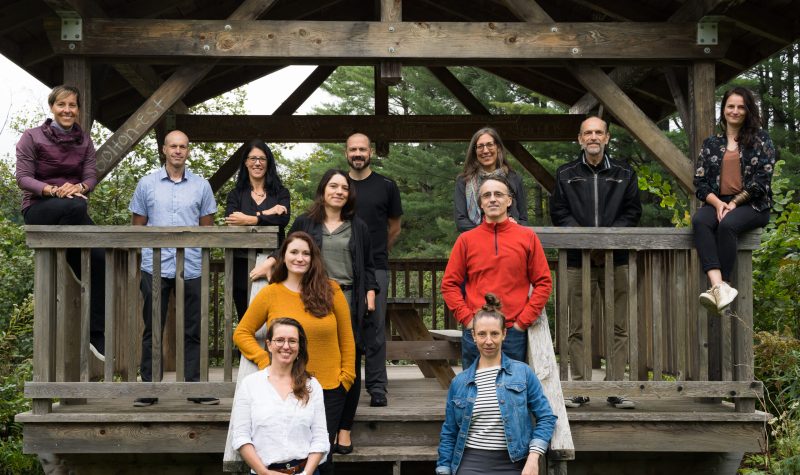Appalachian Corridor, a non-profit conservation organization, is marking its 20 year milestone.
The organization was founded in 2002 by Francine Hone, Louise Gratton, and Terri Monahan all of whom shared a vision to preserve, in perpetuity, the natural landscape of the Appalachian region in southern Quebec. Appalachian Corridor works alongside various other conservation organizations, private land owners and municipalities in the Eastern Townships to ensure that the ecology, biodiversity, the ecosystem, and the species that thrive on the region’s natural landscape are protected. With two decades under its belt, the group hopes to carry out its mission for another 20 years to come.
“The World Wildlife Foundation launched a report (2002) highlighting the crucial importance of the Sutton Range. So, things were starting to move in conservation and this report was available saying that the Sutton Range was very critical to the ecosystem in the region,” explained Mélanie Lelièvre, executive director of Appalachian Corridor. “Three women with leadership, with a vision, got together (…) and they were looking at what was happening with this scientific report and decided to put in place this organization."
With a large landscape conservation strategy, Lelièvre explained that the initial objective was to link the Sutton Range with Orford National Park.
“It was very innovative when it started, but it worked. They gathered people around this vision and this project and the organization was officially launched,” she said.
20 years later, the organization’s mission hasn’t changed and working with private landowners remains at its core.
“It means the vision was good at that time, it was effective, and still very pertinent. Our mission is really to protect land. 95 per cent of the territory is mainly on private land and the nature is exceptional. The biodiversity is very rich, we have large forest cores, wide ranging mammals, a lot of plant species that at risk,” said Lelièvre.
According to Lelièvre, Appalachian Corridor is now focusing on strengthening their partnerships with municipalities, towns, and cities.
“Even though we are having good results in conservation and creating protected areas in perpetuity, most of the land will not be protected forever. If we work closely with municipalities to enhance and have better by-laws that take into account the ecosystem, the importance of the ecology, critical areas, we will have better results in protecting the biodiversity,” noted Lelièvre.
Describing Townshippers’ attachment to the region’s landscape and nature as “vibrant,” Lelièvre mentioned that most landowners are open to the idea of playing their part.
“When we have this discussion with landowners, it’s like a little seed in the dirt and over time this seed might come up and become a concrete project,” she said.
With many achievements over the last 20 years, it was hard for Lelièvre to highlight just a few, but she was excited to announce a special event taking place at the end of the summer.
“In 2019, we achieved a very nice success in conservation with the protection of Mount Foster.
That project, the housing development, was at a dead-end for seven years and the citizens were torn with this project. (…) It was very, very difficult. It took two years and in 2019 we were able to reach an agreement and do fundraising in the region,” recounted Lelièvre. “We concluded the protection of 215 hectares on that property for a total value $2 million with the help of the community. We are just about to launch the trails on this property by the end of the summer or early September.”
With a growing network of partnerships and new projects, Appalachian Corridor looks forward to the future and is always seeking to collaborate.
“I think in 20 years, what we really want is people to realize how much local conservation groups create value by protecting those areas and we want this to still be very present in the community to have this culture of conservation in the region,” she emphasized.
For more information about Appalachian Corridor or to get involved, visit corridorappalachien.ca/en/
Listen to the full interview below:


